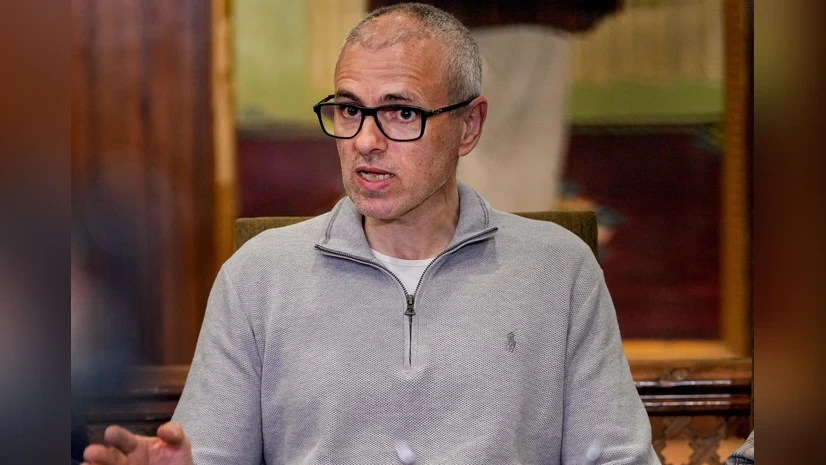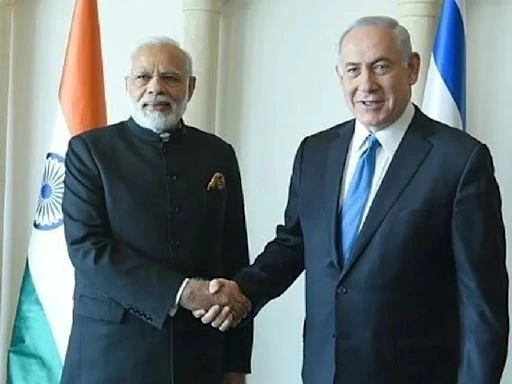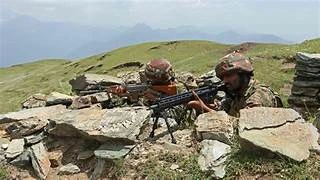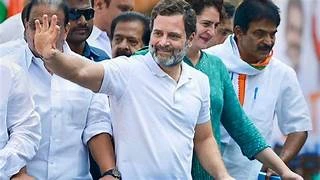14-JULY-2025, 12:25PM
In a scathing critique of the mainstream media, Omar Abdullah, former Chief Minister of Jammu and Kashmir and National Conference (NC) leader, has accused several prominent newspapers of deliberately downplaying and burying a critical fact regarding the detention of an entire state government. His remarks come amid ongoing debates over press freedom, narrative control, and the treatment of political voices in Jammu and Kashmir post-August 2019.
Omar Abdullah’s statements have reignited scrutiny over media independence and raised questions about the role of journalists in reporting the truth versus the state-approved version of events. His words resonate deeply, especially in the context of the alleged mass detentions that followed the abrogation of Article 370.
Omar Abdullah Slams Media for Ignoring Key Historical Event
Omar Abdullah : Entire Govt Was Locked Up — Why Isn’t That the Headline?
Speaking on the sidelines of a press briefing in Srinagar, Omar Abdullah lashed out at national dailies for failing to highlight the fact that an entire elected government was put behind bars in 2019. He pointed out that while the media continues to cover Kashmir-related developments, many choose to omit or downplay the reality of what transpired post-Article 370 abrogation.
“The media has become selective in reporting. When the entire government—ministers, MLAs, political workers—were jailed, that story was buried under layers of propaganda,” Omar said.
He argued that had this happened in any other part of India, the outrage would have been widespread and persistent.
Omar Abdullah : Silence on Constitutional Crisis?
Omar Abdullah also termed the post-2019 detentions a constitutional crisis, alleging that no state institution came to the rescue of the democratically elected government. “We talk about the Constitution, democracy, and justice. But when an elected leadership is silenced overnight, why was there no editorial outcry?” he questioned.
He emphasized that the failure to adequately report this aspect of Kashmir’s story creates an incomplete and misleading public narrative, especially for people outside the region.
Omar Abdullah : Media Ethics and Kashmir — A Growing Trust Deficit
Omar Abdullah : The Disappearing Line Between Journalism and State Narratives
Omar Abdullah’s comments bring renewed focus to the press environment in Kashmir, where several journalists have faced intimidation, summons, or even imprisonment under charges such as sedition or UAPA. In such an atmosphere, critics argue, press freedom is not just shrinking—it is being structurally dismantled.
“We are not asking for sympathy. We are asking for accuracy and honesty in reporting,” said Omar, adding that the job of the press is to speak truth to power, not protect it.
Selective Outrage on Display
According to Omar Abdullah, selective media outrage is part of a broader pattern. He pointed to how human rights violations, internet shutdowns, and administrative overreach in Jammu and Kashmir rarely receive the same level of scrutiny or debate as incidents in other Indian states.
“This double standard damages national integration more than anything else,” Omar warned, asserting that the citizens of J&K deserve the same democratic protections as anyone else in the country.
Historical Context — The Aftermath of Article 370 Abrogation
What Happened in August 2019?
On August 5, 2019, the Indian government revoked Article 370, effectively removing Jammu and Kashmir’s special constitutional status. In the days that followed, dozens of political leaders, including former Chief Ministers Omar Abdullah, Mehbooba Mufti, and Farooq Abdullah, were detained under the Public Safety Act (PSA).
These detentions were widely criticized by human rights organizations, opposition leaders, and even some foreign governments. Yet, as Omar Abdullah pointed out, the magnitude of these events has gradually faded from national memory—partly due to the media’s silence or complicity.
Detentions and Democracy
Omar stated that the long-term detention of elected officials without trial sets a dangerous precedent. “You can’t say India is the world’s largest democracy and then normalize what happened to the people’s representatives in Kashmir,” he added.
His remarks underscore the lingering unease over the democratic process in the Union Territory, especially as elections have not been held since the reorganization of the state.
Public Response and Political Fallout
Support from Regional Political Circles
Leaders from parties like the PDP, CPI(M), and even independent activists in Kashmir have backed Omar Abdullah’s criticism of the media. Many have called for a restoration of journalistic integrity and greater transparency in state-media relations.
“These aren’t just political statements—they are a cry for justice,” said PDP leader Naeem Akhtar, echoing Omar’s demand for honest reporting.
Mixed Reactions Across the Country
Outside Kashmir, reactions have been divided. While some journalists acknowledged that media houses should have done more, others dismissed Omar’s comments as politically motivated, aimed at reviving his party’s waning influence.
Still, a significant section of civil society agrees that the media’s role in narrating Kashmir’s story post-2019 has been far from impartial.
What Omar Abdullah Wants Going Forward
A Call for Restoring Faith in Media
Omar Abdullah has called upon the media to revisit its own role in shaping public opinion about Kashmir. “It’s not about us. It’s about how you choose to inform the rest of India. Journalism must not be reduced to PR for the establishment,” he remarked.
He urged journalists to investigate, report, and challenge narratives—especially when constitutional and democratic principles are at stake.
A Demand for Political Accountability
Beyond the media, Omar demanded that the central government be held accountable for its actions. “Locking up an entire government without trial is not just a legal issue—it’s a moral one. And every institution that stayed silent shares in that guilt,” he said.
He reiterated the National Conference’s demand for early elections in J&K, the restoration of full statehood, and an open media environment where truth is not buried under the weight of political convenience.
Conclusion: Omar Abdullah’s Warning to Indian Democracy
Omar Abdullah’s sharp rebuke of the media is more than just political posturing—it’s a warning about the fragility of democratic institutions when truth is obscured and dissenting voices are silenced. His critique urges a collective reckoning with how journalism is practiced in conflict zones and whether India can truly call itself a democracy if some of its citizens are treated differently than others.
As the nation moves toward another election cycle, questions about media freedom, democratic integrity, and constitutional rights in Jammu and Kashmir remain unanswered. Omar Abdullah has sounded the alarm—whether the country listens is another matter entirely.
Source : ANI





